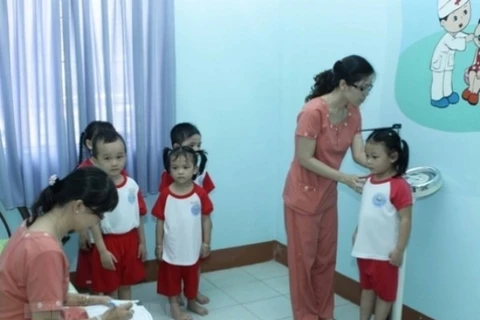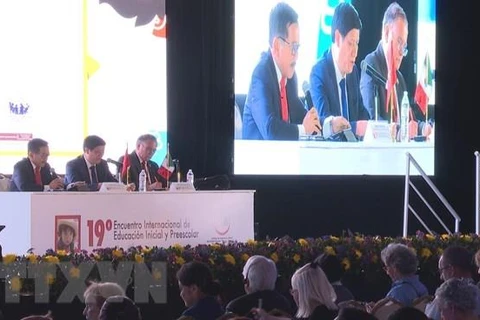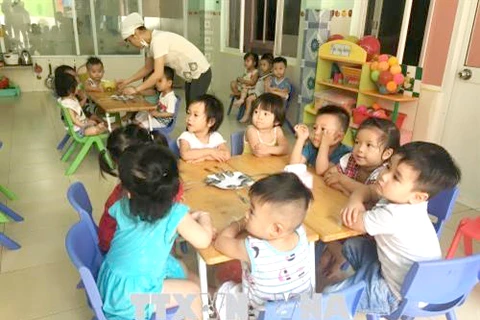Hanoi (VNA) – Prime Minister Pham Minh Chinh on April 4 highlighted the important role of preschool education to the national education system as well as the country’s human resources development.
Chairing a meeting of the National Committee for Education and Training Reform in Hanoi, the leader said preschool education lays a foundation for comprehensive development of Vietnamese people.
The meeting looked into preschool education reform and development programme by 2030 with a vision towards 2045, with its outcomes to be reported to the National Assembly for consideration.
Chinh, who is also head of the committee, pointed out the fact that preschool education has yet to receive due attention, especially in remote areas and those predominantly inhabited by workers.
The PM reiterated the motto pursued by Vietnam in its national construction and development which takes people as the centre, subject, goal, momentum, and resources for the cause.
He, therefore, stressed the need to reform preschool education comprehensively in line with instructions from the Party and the State, adding bottlenecks in human resources, infrastructure and inequality, particularly in remote, and border and island areas must be removed.
The leader ordered reviewing mechanisms and policies to mobilise resources for preschool education, especially those on tax and the access to land and credit loans, thus raising personnel quality in the sector.
According to a report presented at the meeting, each year, over 5.3 million children are raised and educated at more than 15,000 preschools and nearly 16,000 other establishments nationwide, with 56.9% of which satisfying national standards./.
Chairing a meeting of the National Committee for Education and Training Reform in Hanoi, the leader said preschool education lays a foundation for comprehensive development of Vietnamese people.
The meeting looked into preschool education reform and development programme by 2030 with a vision towards 2045, with its outcomes to be reported to the National Assembly for consideration.
Chinh, who is also head of the committee, pointed out the fact that preschool education has yet to receive due attention, especially in remote areas and those predominantly inhabited by workers.
The PM reiterated the motto pursued by Vietnam in its national construction and development which takes people as the centre, subject, goal, momentum, and resources for the cause.
He, therefore, stressed the need to reform preschool education comprehensively in line with instructions from the Party and the State, adding bottlenecks in human resources, infrastructure and inequality, particularly in remote, and border and island areas must be removed.
The leader ordered reviewing mechanisms and policies to mobilise resources for preschool education, especially those on tax and the access to land and credit loans, thus raising personnel quality in the sector.
According to a report presented at the meeting, each year, over 5.3 million children are raised and educated at more than 15,000 preschools and nearly 16,000 other establishments nationwide, with 56.9% of which satisfying national standards./.
VNA
























